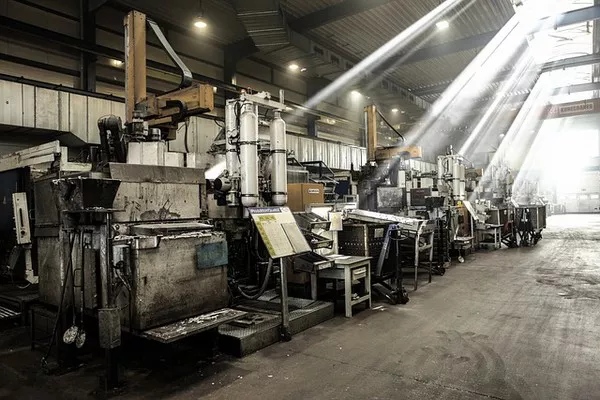In the intricate web of industries where precision and control are paramount, the role of an Instrumentation Technician emerges as a linchpin in ensuring seamless operations. As technology continues to advance, the demand for professionals who can navigate and maintain complex instrumentation systems has grown exponentially. This article delves into the multifaceted realm of an Instrumentation Technician, exploring their responsibilities, skills, and the pivotal role they play in various industries.
Defining the Instrumentation Technician:
An Instrumentation Technician is a skilled professional responsible for installing, maintaining, and repairing the instrumentation and control systems that monitor and manage industrial processes. These systems include a wide array of devices such as sensors, controllers, transmitters, and other specialized equipment that ensure the efficiency and safety of industrial operations.
Key Responsibilities:
Installation and Calibration:
Instrumentation Technicians are adept at installing and calibrating a diverse range of instruments. This involves precisely setting up sensors and control devices to ensure accurate readings and optimal performance. The calibration process is critical for maintaining the integrity of data and ensuring that the instruments provide reliable information.
Maintenance and Troubleshooting:
One of the primary responsibilities of an Instrumentation Technician is the ongoing maintenance of instrumentation systems. This includes regular inspections, testing, and troubleshooting to identify and rectify any issues promptly. Their expertise extends to diagnosing complex problems and implementing solutions efficiently, minimizing downtime in industrial processes.
Upgrading and Retrofitting:
As technology evolves, instrumentation systems become outdated. Instrumentation Technicians are tasked with upgrading or retrofitting existing systems to integrate new technologies. This requires a deep understanding of both old and new systems, ensuring a seamless transition without compromising the overall efficiency of the industrial process.
Documentation and Compliance:
Instrumentation Technicians meticulously document their work, keeping detailed records of installations, maintenance activities, and repairs. This documentation is not only essential for their own reference but also plays a crucial role in meeting regulatory compliance standards. Adherence to industry regulations is vital to ensure the safety and reliability of industrial processes.
Skills Required:
Technical Proficiency: Instrumentation Technicians must have a solid foundation in technical skills, including a deep understanding of electrical circuits, control systems, and various instrumentation devices. This knowledge is essential for the accurate installation, calibration, and maintenance of complex industrial systems.
Problem-Solving Aptitude: Given the intricacies of instrumentation systems, Instrumentation Technicians need strong problem-solving skills. They must be able to analyze data, identify issues, and implement effective solutions under pressure to minimize disruptions to industrial processes.
Communication Skills: Effective communication is key for Instrumentation Technicians, as they often work in collaborative environments. Clear communication with colleagues, engineers, and other stakeholders ensures that everyone is on the same page regarding the status of instrumentation systems and any ongoing maintenance or repairs.
Attention to Detail: Precision is paramount in the work of an Instrumentation Technician. Attention to detail is crucial during the installation, calibration, and maintenance processes to ensure the accurate functioning of instruments and the reliability of data collected.
Adaptability: The field of instrumentation is dynamic, with technological advancements occurring regularly. Instrumentation Technicians need to stay abreast of these changes and be adaptable to new technologies. This adaptability ensures they can effectively handle the integration of the latest instrumentation systems into existing industrial processes.
Significance in Various Industries:
Instrumentation Technicians play a critical role in a multitude of industries, contributing to the functionality and efficiency of processes across sectors. Some key industries where their expertise is indispensable include:
Oil and Gas: In the oil and gas industry, Instrumentation Technicians are vital for ensuring the safe and efficient operation of refineries and drilling platforms. They monitor and control processes to prevent accidents and maintain the integrity of equipment.
Manufacturing: In manufacturing plants, Instrumentation Technicians oversee the instrumentation and control systems that regulate production processes. They contribute to the optimization of manufacturing efficiency and the quality of end products.
Chemical Processing: Instrumentation is integral to chemical processing, where precise control is necessary to prevent chemical reactions from going awry. Instrumentation Technicians in this industry help maintain the delicate balance required for safe and efficient chemical production.
Power Generation: In power plants, Instrumentation Technicians ensure the smooth functioning of control systems that regulate the generation and distribution of electrical power. Their work is crucial for preventing electrical failures and optimizing energy production.
Conclusion:
The role of an Instrumentation Technician is indispensable in the contemporary industrial landscape. As industries continue to embrace automation and sophisticated control systems, the demand for skilled professionals in instrumentation is on the rise. Instrumentation Technicians serve as the backbone of industrial processes, contributing to efficiency, safety, and compliance. Their technical prowess, problem-solving skills, and adaptability make them essential assets in various industries where precision and control are paramount.

